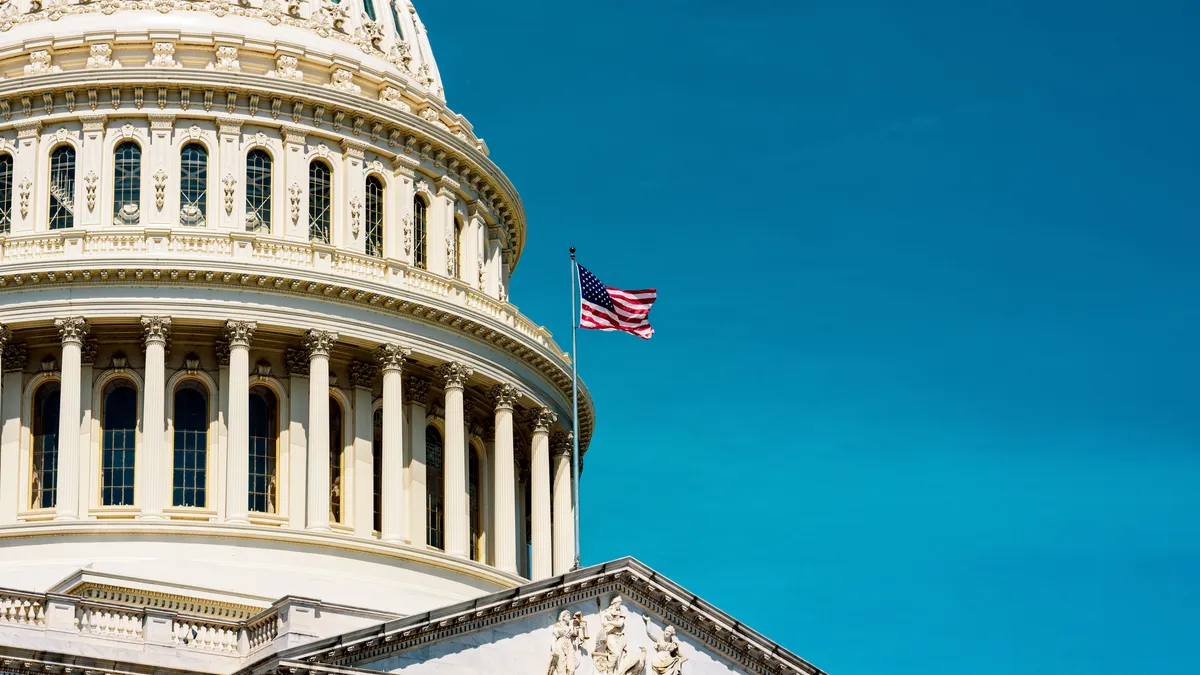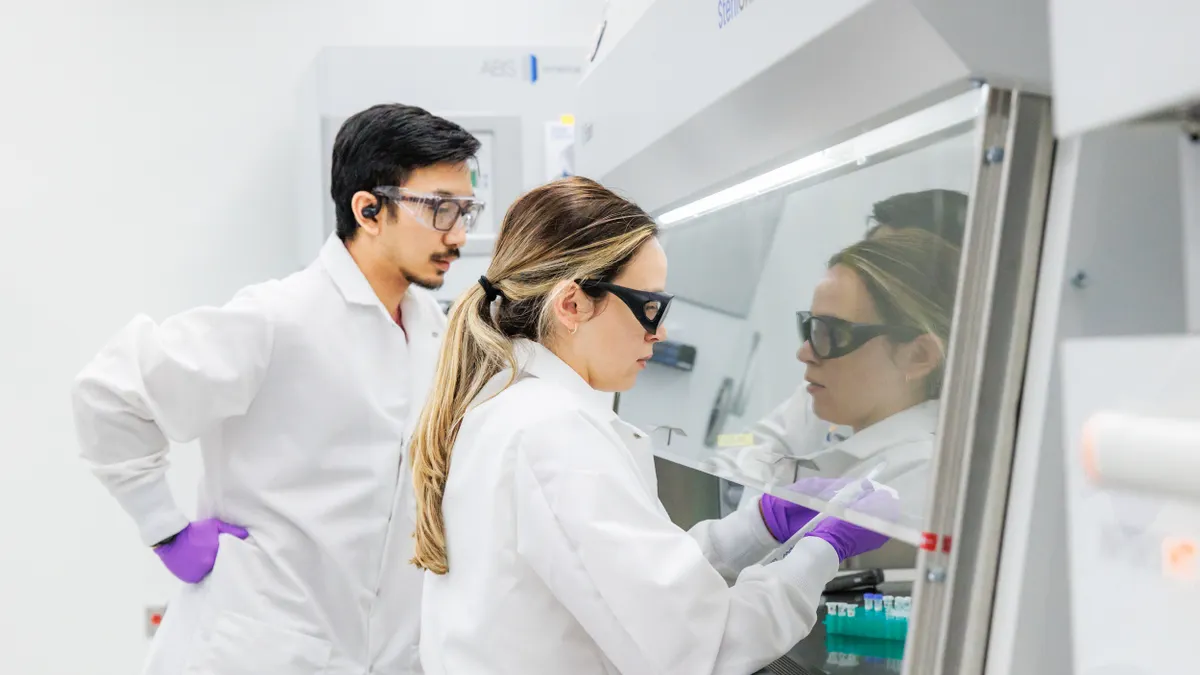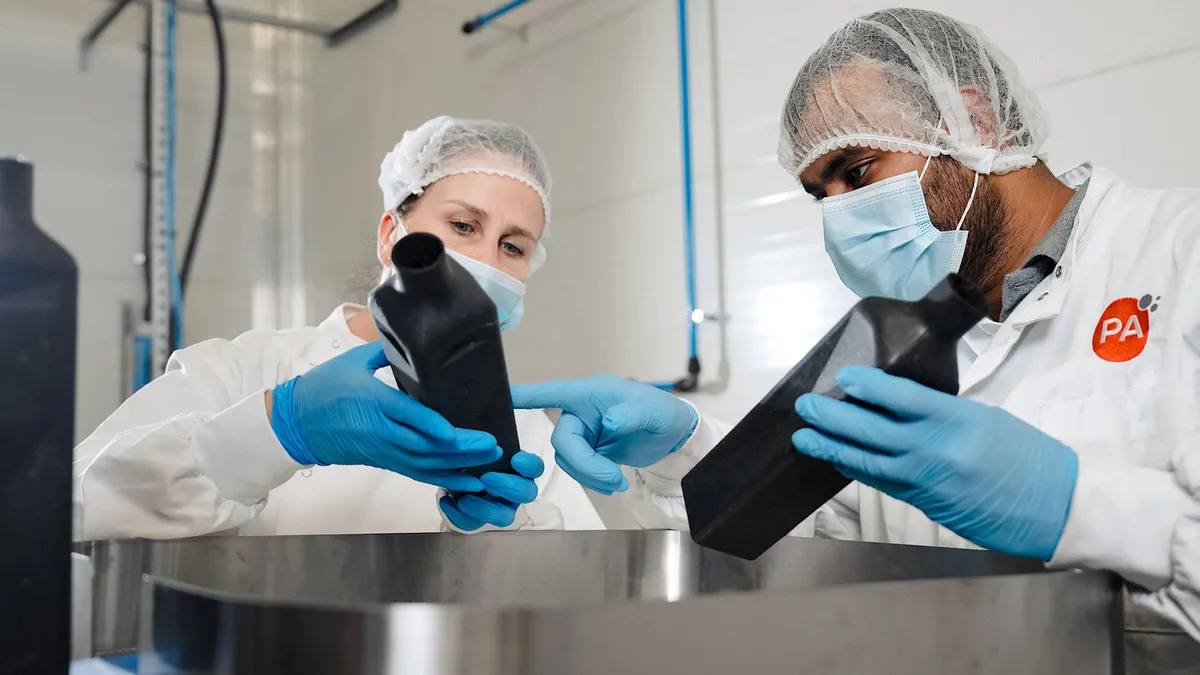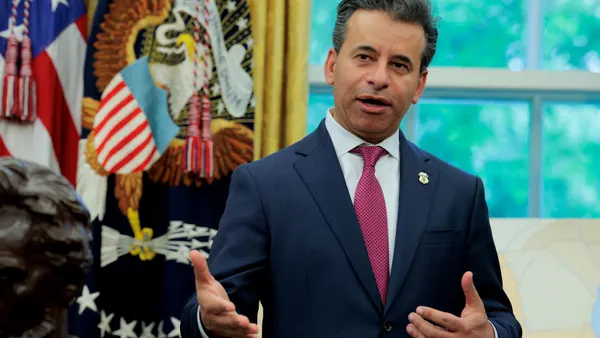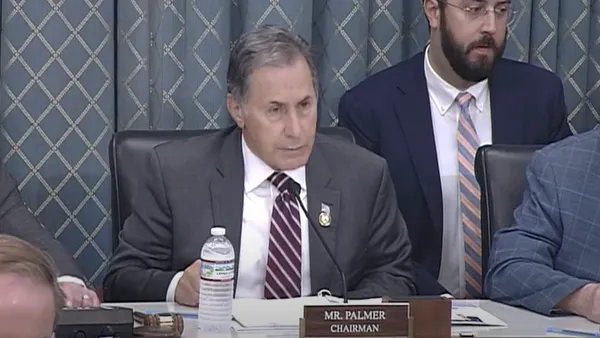A group of federal lawmakers last week reintroduced a bill that would establish an excise tax on virgin plastics used to make single-use products such as plastic packaging, beverage containers and food service products.
Under the Rewarding Efforts to Decrease Unrecycled Contaminants in Ecosystems (REDUCE) Act, that tax would start at 10 cents per pound of virgin plastic in 2024, increasing to 15 cents per pound in 2025 and 20 cents in 2026. A similar version of the bill was previously introduced in 2021.
Sponsors say that a fee on virgin plastic production would help incentivize the use of costlier recycled plastics. Postconsumer recycled resins and exported virgin plastic resins would be exempt from the fees, as would certain small businesses that import or produce virgin resin, and virgin plastic used to package medicine or hazardous materials.
Revenue from fees collected would go into a Plastic Waste Reduction Fund to support efforts such as improvements to recycling infrastructure or addressing pollution impacts from plastic production.
The bill is sponsored by Sens. Sheldon Whitehouse, D-R.I.; Ron Wyden, D-Ore.; Chris Van Hollen, D-Md.; and Robert Menendez, D-N.J.; as well as 26 members of the House of Representatives.
Organizations such as U.S. PIRG, Environment America and WWF have supported the legislation, while plastics industry groups have spoken out against it.
“We support the reintroduction of the REDUCE Act, which would help rein in the amount of waste we produce and encourage plastic manufacturers to use recycled plastic instead of making more,” said Janet Domenitz, executive director of MASSPIRG.
PLASTICS President and CEO Matt Seaholm emphasized the importance of collaboration with industry. “The plastics industry is committed to keeping plastic out of the environment and in the economy, but we need partners and collaboration to reach this goal. The REDUCE Act makes no mention of collaboration and would detrimentally impact American manufacturers, workers and consumers who are already burdened by inflation,” Seaholm said in a statement. “We are disappointed in this legislation but will continue to work with all Members of Congress who want to keep plastic waste out of the environment.”
The American Chemistry Council believes a national standard for requiring all plastic packaging to include at least 30% recycled plastics within the decade “is a much more feasible, market-driven approach to increasing recycling and reducing waste, without resorting to harmful taxes,” said Ross Eisenberg, president of America’s Plastic Makers, said in an ACC statement.
ACC also encouraged Congress to support other bills such as the Recycling and Composting Accountability Act, the Recycling Infrastructure and Accessibility Act and the upcoming Save Our Seas Act 3.0.



